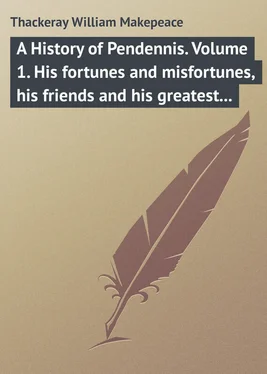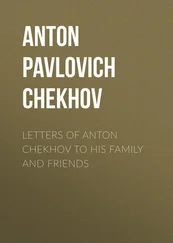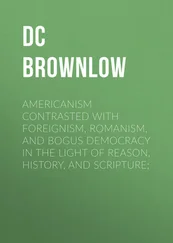William Thackeray - A History of Pendennis. Volume 1. His fortunes and misfortunes, his friends and his greatest enemy
Здесь есть возможность читать онлайн «William Thackeray - A History of Pendennis. Volume 1. His fortunes and misfortunes, his friends and his greatest enemy» — ознакомительный отрывок электронной книги совершенно бесплатно, а после прочтения отрывка купить полную версию. В некоторых случаях можно слушать аудио, скачать через торрент в формате fb2 и присутствует краткое содержание. Жанр: foreign_humor, foreign_prose, foreign_language, на английском языке. Описание произведения, (предисловие) а так же отзывы посетителей доступны на портале библиотеки ЛибКат.
- Название:A History of Pendennis. Volume 1. His fortunes and misfortunes, his friends and his greatest enemy
- Автор:
- Жанр:
- Год:неизвестен
- ISBN:нет данных
- Рейтинг книги:3 / 5. Голосов: 1
-
Избранное:Добавить в избранное
- Отзывы:
-
Ваша оценка:
- 60
- 1
- 2
- 3
- 4
- 5
A History of Pendennis. Volume 1. His fortunes and misfortunes, his friends and his greatest enemy: краткое содержание, описание и аннотация
Предлагаем к чтению аннотацию, описание, краткое содержание или предисловие (зависит от того, что написал сам автор книги «A History of Pendennis. Volume 1. His fortunes and misfortunes, his friends and his greatest enemy»). Если вы не нашли необходимую информацию о книге — напишите в комментариях, мы постараемся отыскать её.
A History of Pendennis. Volume 1. His fortunes and misfortunes, his friends and his greatest enemy — читать онлайн ознакомительный отрывок
Ниже представлен текст книги, разбитый по страницам. Система сохранения места последней прочитанной страницы, позволяет с удобством читать онлайн бесплатно книгу «A History of Pendennis. Volume 1. His fortunes and misfortunes, his friends and his greatest enemy», без необходимости каждый раз заново искать на чём Вы остановились. Поставьте закладку, и сможете в любой момент перейти на страницу, на которой закончили чтение.
Интервал:
Закладка:
It was on that night, long after midnight, that wakeful Helen, passing stealthily by her son's door, saw a light streaming through the chink of the door into the dark passage, and heard Pen tossing and tumbling, and mumbling verses in his bed. She waited outside for a while, anxiously listening to him. In infantile fevers and early boyish illnesses, many a night before, the kind soul had so kept watch. She turned the lock very softly now, and went in so gently, that Pen for a moment did not see her. His face was turned from her. His papers on his desk were scattered about, and more were lying on the bed round him. He was biting a pencil and thinking of rhymes and all sorts of follies and passions. He was Hamlet jumping into Ophelia's grave; he was the Stranger taking Mrs. Haller to his arms, beautiful Mrs. Haller with the raven ringlets falling over her shoulders. Despair and Byron, Thomas Moore and all the Loves of the Angels, Waller and Herrick, Beranger and all the love-songs he had ever read, were working and seething in this young gentleman's mind, and he was at the very height and paroxysm of the imaginative frenzy, when his mother found him.
"Arthur," said the mother's soft silver voice: and he started up and turned round. He clutched some of the papers and pushed them under the pillow.
"Why don't you go to sleep, my dear?" she said, with a sweet tender smile, and sate down on the bed and took one of his hot hands.
Pen looked at her wildly for an instant – "I couldn't sleep," he said – "I – I was – I was writing." – And hereupon he flung his arms round her neck and said, "O mother! I love her, I love her!" – How could such a kind soul as that help soothing and pitying him? The gentle creature did her best: and thought with a strange wonderment and tenderness, that it was only yesterday that he was a child in that bed: and how she used to come and say her prayers over it before he woke upon holiday mornings.
They were very grand verses, no doubt, although Miss Fotheringay did not understand them; but old Cos, with a wink and a knowing finger on his nose, said, "Put them up with th' other letthers, Milly darling. Poldoody's pomes was nothing to this." So Milly locked up the manuscripts.
When, then, the major being dressed and presentable, presented himself to Mrs. Pendennis, he found in the course of ten minutes' colloquy that the poor widow was not merely distressed at the idea of the marriage contemplated by Pen, but actually more distressed at thinking that the boy himself was unhappy about it, and that his uncle and he should have any violent altercation on the subject. She besought Major Pendennis to be very gentle with Arthur: "He has a very high spirit, and will not brook unkind words," she hinted. "Dr. Portman spoke to him very roughly – and I must own unjustly, the other night – for my dearest boy's honor is as high as any mother can desire – but Pen's answer quite frightened me, it was so indignant. Recollect he is a man now; and be very – very cautious," said the widow, laying a fair long hand on the major's sleeve.
He took it up, kissed it gallantly, and looked in her alarmed face with wonder, and a scorn which he was too polite to show. " Bon dieu! " thought the old negotiator, "the boy has actually talked the woman round, and she'd get him a wife as she would a toy, if master cried for it. Why are there no such things as lettres-de-cachet – and a Bastile for young fellows of family?" The major lived in such good company that he might be excused for feeling like an earl. – He kissed the widow's timid hand, pressed it in both his, and laid it down on the table with one of his own over it, as he smiled and looked her in the face.
"Confess," said he, "now that you are thinking how you possibly can make it up to your conscience to let the boy have his own way."
She blushed, and was moved, in the usual manner of females. "I am thinking that he is very unhappy; and I am too – "
"To contradict him or to let him have his own wish?" asked the other; and added, with great comfort to his inward self, "I'm d – d if he shall."
"To think that he should have formed so foolish and cruel and fatal an attachment," the widow said, "which can but end in pain whatever be the issue."
"The issue shan't be marriage, my dear sister," the major said, resolutely. "We're not going to have a Pendennis, the head of the house, marry a strolling mountebank from a booth. No, no, we won't marry into Greenwich Fair, ma'am."
"If the match is broken suddenly off," the widow interposed, "I don't know what may be the consequence. I know Arthur's ardent temper, the intensity of his affections, the agony of his pleasures and disappointments, and I tremble at this one, if it must be. Indeed, indeed, it must not come on him too suddenly."
"My dear madam," the major said, with an air of the deepest commiseration, "I've no doubt Arthur will have to suffer confoundedly before he gets over the little disappointment. But is he, think you, the only person who has been so rendered miserable?"
"No, indeed," said Helen, holding down her eyes. She was thinking of her own case, and was at that moment seventeen again, and most miserable.
"I, myself," whispered her brother-in-law, "have undergone a disappointment in early life. A young woman with fifteen thousand pounds, niece to an earl – most accomplished creature – a third of her money would have run up my promotion in no time, and I should have been a lieutenant-colonel at thirty: but it might not be. I was but a penniless lieutenant: her parents interfered, and I embarked for India – where I had the honor of being secretary to Lord Buckley, when commander-in-chief – without her. What happened? We returned our letters, sent back our locks of hair (the major here passed his fingers through his wig), we suffered, but we recovered. She is now a baronet's wife with thirteen grown-up children: altered, it is true, in person; but her daughters remind me of what she was, and the third is to be presented early next week."
Helen did not answer. She was still thinking of old times. I suppose if one lives to be a hundred, there are certain passages of one's early life whereof the recollection will always carry us back to youth again, and that Helen was thinking of one of these.
"Look at my own brother, my dear creature," the major continued gallantly: "he himself, you know, had a little disappointment when he started in the – the medical profession – an eligible opportunity presented itself. Miss Balls, I remember the name, was daughter of an apoth – a practitioner in very large practice; my brother had very nearly succeeded in his suit. – But difficulties arose: disappointments supervened, and – and I am sure he had no reason to regret the disappointment, which gave him this hand," said the major, and he once more politely pressed Helen's fingers.
"Those marriages between people of such different rank and age," said Helen, "are sad things. I have known them produce a great deal of unhappiness. – Laura's father, my cousin, who – who was brought up with me" – she added in a low voice, "was an instance of that."
"Most injudicious," cut in the major. "I don't know any thing more painful than for a man to marry his superior in age or his inferior in station. Fancy marrying a woman of a low rank of life, and having your house filled with her confounded tag-rag-and-bobtail of relations! Fancy your wife attached to a mother who dropped her h's, or called Maria Marire! How are you to introduce her into society? My dear Mrs. Pendennis, I will name no names, but in the very best circles of London society I have seen men suffering the most excruciating agony, I have known them to be cut, to be lost entirely, from the vulgarity of their wives' connections. What did Lady Snapperton do last year at her déjeuné dansant after the Bohemian Ball? She told Lord Brouncker that he might bring his daughters or send them with a proper chaperon, but that she would not receive Lady Brouncker: who was a druggist's daughter, or some such thing, and as Tom Wagg remarked of her, never wanted medicine certainly, for she never had an h in her life. Good Ged, what would have been the trifling pang of a separation in the first instance to the enduring infliction of a constant misalliance and intercourse with low people?"
Читать дальшеИнтервал:
Закладка:
Похожие книги на «A History of Pendennis. Volume 1. His fortunes and misfortunes, his friends and his greatest enemy»
Представляем Вашему вниманию похожие книги на «A History of Pendennis. Volume 1. His fortunes and misfortunes, his friends and his greatest enemy» списком для выбора. Мы отобрали схожую по названию и смыслу литературу в надежде предоставить читателям больше вариантов отыскать новые, интересные, ещё непрочитанные произведения.
Обсуждение, отзывы о книге «A History of Pendennis. Volume 1. His fortunes and misfortunes, his friends and his greatest enemy» и просто собственные мнения читателей. Оставьте ваши комментарии, напишите, что Вы думаете о произведении, его смысле или главных героях. Укажите что конкретно понравилось, а что нет, и почему Вы так считаете.












